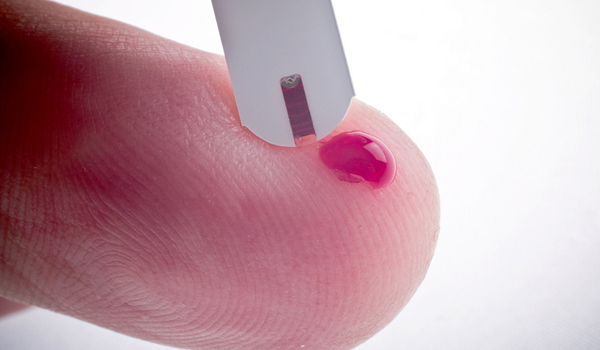Diabetes 'Cure': Diet & Exercise Work for Some

People with Type 2 diabetes can reverse their condition with diet and exercise, although remission is not very common, according to a new study from the Centers for Disease Control and Prevention.
After one year of regular counseling sessions to encourage weight loss and physical activity, 11.5 percent of obese adults with Type 2 diabetes saw their condition at least partially reverse — meaning their blood sugar levels decreased to those of a prediabetic, without the need for medication. Just 2 percent of those who did not receive intensive counseling partially reversed their diabetes. After four years, the rate of partial diabetes remission in the counseling group declined slightly, to 7 percent.
Full remission — achieving normal blood sugar levels — was rarer, with just 1.3 percent of people in the counseling group and 0.1 percent in the non-counseling group meeting this goal after one year.
Type 2 diabetes has traditionally been seen as a progressive disease that is managed rather than cured. Recent studies have suggested it can be reversed with weight loss surgery, or by following an extreme diet that mimics surgery.
However, until this study, little was known about the rate of long-term diabetes reversal without surgery or extreme dieting. About 26 million Americans have diabetes, according to the Centers for Disease Control and Prevention.
The study confirms that complete Type 2 diabetes remission is rare, but that partial remission is an obtainable goal for some patients, the researchers said.
Experts said that, because the definitions of complete or partial diabetes remission are arbitrary, researchers should not focus on these measures. What's more important is that patients improve their weight and blood sugar levels, as people in this study did, said Dr. Pieter Cohen, an assistant professor of medicine at Harvard Medical School and a general internist at Cambridge Health Alliance.
Sign up for the Live Science daily newsletter now
Get the world’s most fascinating discoveries delivered straight to your inbox.
"If the great majority of people are losing weight and their sugars are going down, whether or not we call that a remission…it's great news," said Cohen, who was not involved in the study. Although most patients in the study didn't meet the strict criteria for remission, they are moving in the right direction, he said.
Diabetes 'cure'
The study involved about 4,500 obese adults with Type diabetes ages 45 to 76, who were followed for four years.
Half of the participants were randomly assigned to complete an intensive lifestyle- change program, which included weekly counseling sessions for six months, and at least twice-monthly sessions for the remainder of the study period. People in this group were given specific weight loss and physical activity goals. The rest of the participants were offered just three sessions on diet and physical activity per year, and did not have any goals to meet.
People in the counseling group lost 8.6 percent of their weight after one year, compared with just 0.7 percent in the non-counseling group. After four years, the counseling group lost 4.7 percent of their weight, compared with 0.8 percent in the non-counseling group.
Rates of remission were about 15 to 20 percent higher among those who lost substantial weight, improved fitness, had lower blood glucose levels at the study start, or had been diagnosed with diabetes more recently, compared to those who did not meet these criteria.
Diabetes and disease
It's important to note that people in the study had been living with Type 2 diabetes for an average of five years before it began. If diabetes is detected early, and interventions started soon thereafter, Cohen said he would expect that more people could be "cured" with lifestyle changes.
In addition, people who received counseling were provided with meal replacement drinks to help them meet their weight-loss goals. The results might have been better if real fruits and vegetables had been provided, Cohen said.
So far, improving blood sugar levels through diet and exercise has not been shown to reduce the risk of heart attack and stroke in people with diabetes. Future studies will examine whether or not lowering blood sugar with lifestyle changes reduces rates of kidney and eye disease, Cohen said.
In an editorial accompanying the study, Dr. David Arterburn, of the Group Health Research Institute in Seattle, and Dr. Patrick O'Connor, of the HealthPartners Institute for Education and Research in Minneapolis, said the results underscore the need to prevent, rather than treat, diabetes.
"Prevention of diabetes and obesity should be a rallying cry for all clinicians who care about the health of the nation," they wrote.
The study and editorial were published in the Dec. 19 issue of the Journal of the American Medical Association.
Pass it on:It's possible to reverse diabetes with weight loss and exercise changes.
Follow Rachael Rettner on Twitter @RachaelRettner, or MyHealthNewsDaily @MyHealth_MHND. We're also on Facebook & Google+.

Rachael is a Live Science contributor, and was a former channel editor and senior writer for Live Science between 2010 and 2022. She has a master's degree in journalism from New York University's Science, Health and Environmental Reporting Program. She also holds a B.S. in molecular biology and an M.S. in biology from the University of California, San Diego. Her work has appeared in Scienceline, The Washington Post and Scientific American.









